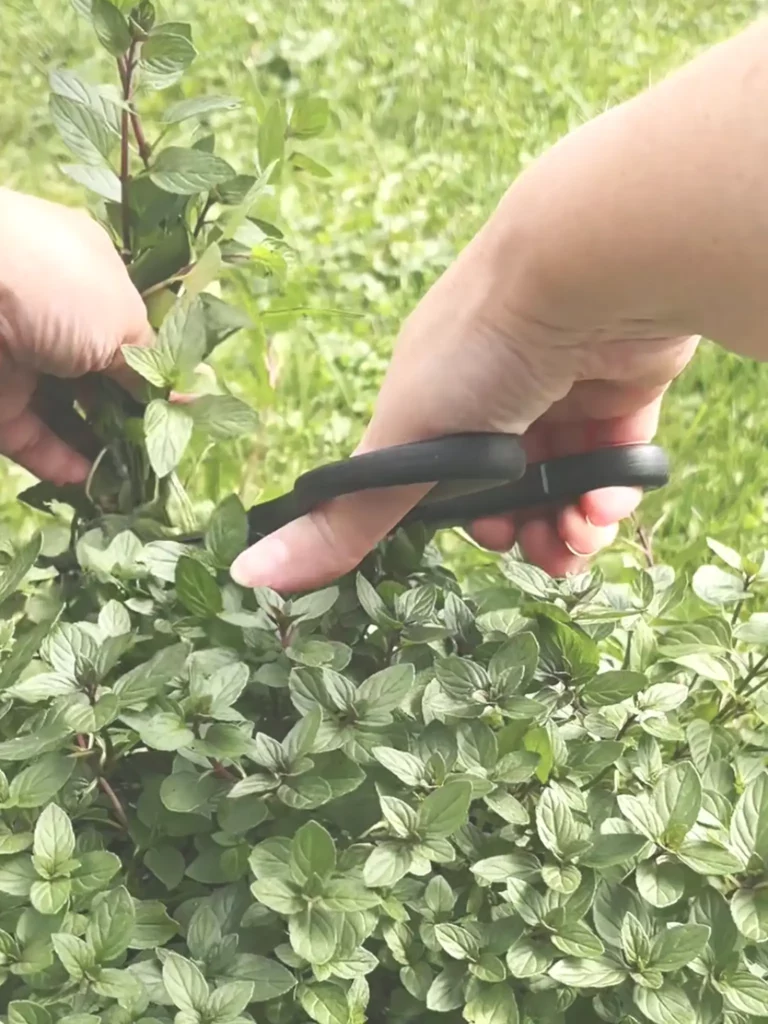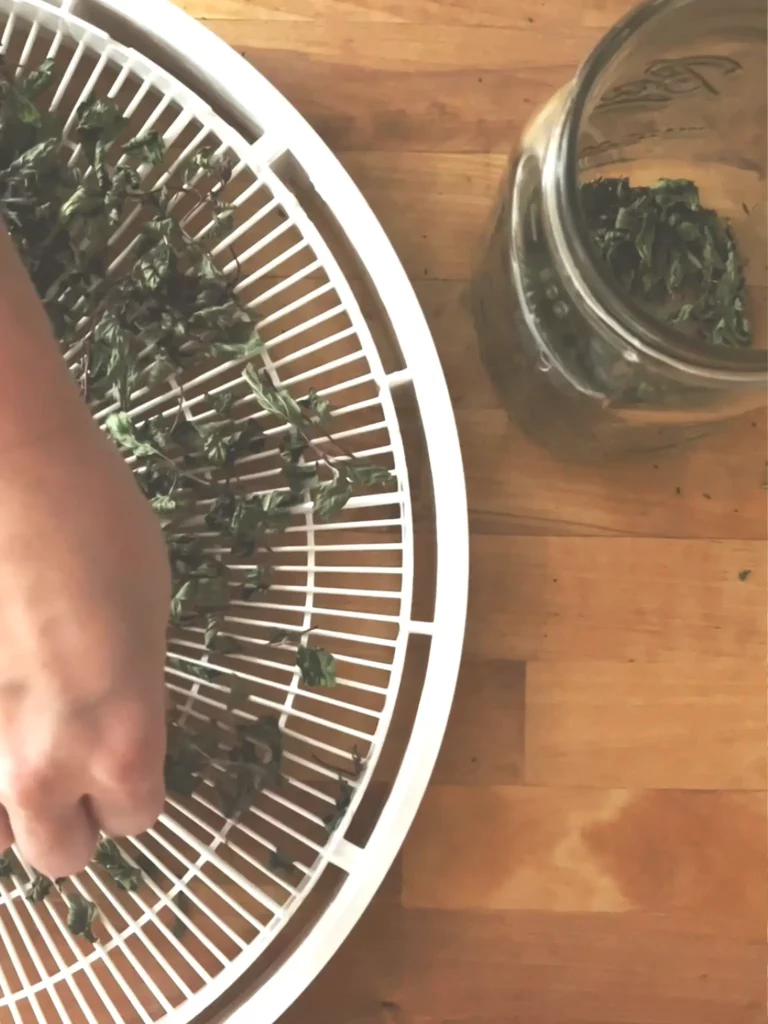There’s nothing quite like a cup of peppermint tea made from homegrown peppermint. Not only does it taste fresher, but it’s also super easy to grow and harvest right from your backyard or container garden.
Peppermint tea can help with digestion, ease headaches and tension, and help clear sinuses thanks to the menthol in the leaves. It’s naturally caffeine-free, so you can drink it any time of day.
Peppermint is a great herb to grow in your garden. It has so many uses like natural pest control in the garden, herbal teas, natural remedies, and food and drink garnishes. It’s easy to grow, low-maintenance, and it survives the cold winters in my zone 5 garden.
Growing Peppermint in Your Garden
Peppermint is actually a cross between spearmint and water mint. Because it’s a hybrid, I find it easiest to propagate by stem cuttings or runners rather than by seed. It’s a hardy perennial that spreads quickly, so I recommend keeping it in containers unless you want it to take over your garden.
Peppermint thrives in partial shade but also does well in full sun with plenty of water. It prefers rich, well-drained soil and likes regular trimming to keep it healthy and bushy.
Harvesting and Drying Peppermint


Once your peppermint plant is established, you can start picking leaves. For the best flavor, harvest in the late morning when the oils are strong and haven’t been depleted by the afternoon sun. Wash the leaves gently and let them dry on a clean towel.
You can air-dry the extra leaves by hanging them in a well-ventilated area or use a dehydrator. Once they’re crisp and fully dry, store them in an airtight container.
Overview
Making peppermint tea is a simple and straightforward process. You only need two ingredients: peppermint leaves and hot water!
Equipment Needed
- Small pan with a lid
- Fine mesh strainer
- Your favorite mug or tea cup
Ingredients
- Water (8 ounces)
- Fresh or dried peppermint leaves (1 tablespoon fresh or 1 teaspoon dried): Peppermint can help with headaches and digestive upset.
Instructions Summary
- Infuse: In a small pan, bring the water to a boil, then remove from the heat. Add in the leaves and cover the pan with a lid. Let the peppermint steep in the pan for 10 minutes. For fresh leaves, tear them up a bit and lightly crush them to release the oils.
- Strain: After steeping for 10 minutes, strain the water into your favorite mug or tea cup.
- Serve: Drink the tea as is, or add milk and honey to taste.
Other recipes with peppermint:
Join Our Newsletter
Sign up for our monthly newsletter to get easy gardening tips, seasonal to-dos, and herbal recipes delivered right to your inbox.
Thank you!
Check your email to confirm your subscription.

Peppermint Tea
Equipment
- Small pan with a lid
- Fine mesh strainer
- Your favorite mug or tea cup
Ingredients
- 8 ounces water
- 1 tablespoon fresh peppermint or 1 teaspoon dried
Instructions
- In a small pan, bring the water to a boil, then remove from the heat. Add in the leaves and cover the pan with a lid. Let the peppermint steep in the pan for 10 minutes. For fresh leaves, tear them up a bit and lightly crush them to release the oils.
- After steeping for 10 minutes, strain the water into your favorite mug or tea cup. Compost the leaves.
- Drink the tea as is, or add milk and honey to taste.
Video
Frequently Asked Questions About Peppermint Tea
Peppermint tea is can help relieve digestive issues like bloating, gas, and indigestion. It also has a cooling, calming effect, which can help ease headaches, clear sinuses, and reduce tension. Additionally, it’s caffeine-free, so you can drink it at anytime for relaxation.
Yes, it is generally safe to drink peppermint tea every day in moderation. However, people with certain conditions, like acid reflux or GERD, may need to be cautious with peppermint. It can worsen symptoms by relaxing the lower esophageal sphincter.
Drinking peppermint tea before bed can help with relaxation and ease stomach discomfort that might disturb your sleep. The menthol in peppermint leaves can help clear sinuses and relax muscles, helping you to rest easier.
People with acid reflux or GERD should avoid peppermint tea because it can worsen symptoms. Pregnant people should consult a healthcare provider before drinking it, and those with mint allergies should also avoid it.
Drinking peppermint tea on an empty stomach can help soothe mild digestive discomfort and reduce morning nausea. However, it could worsen symptoms of acid reflux.













